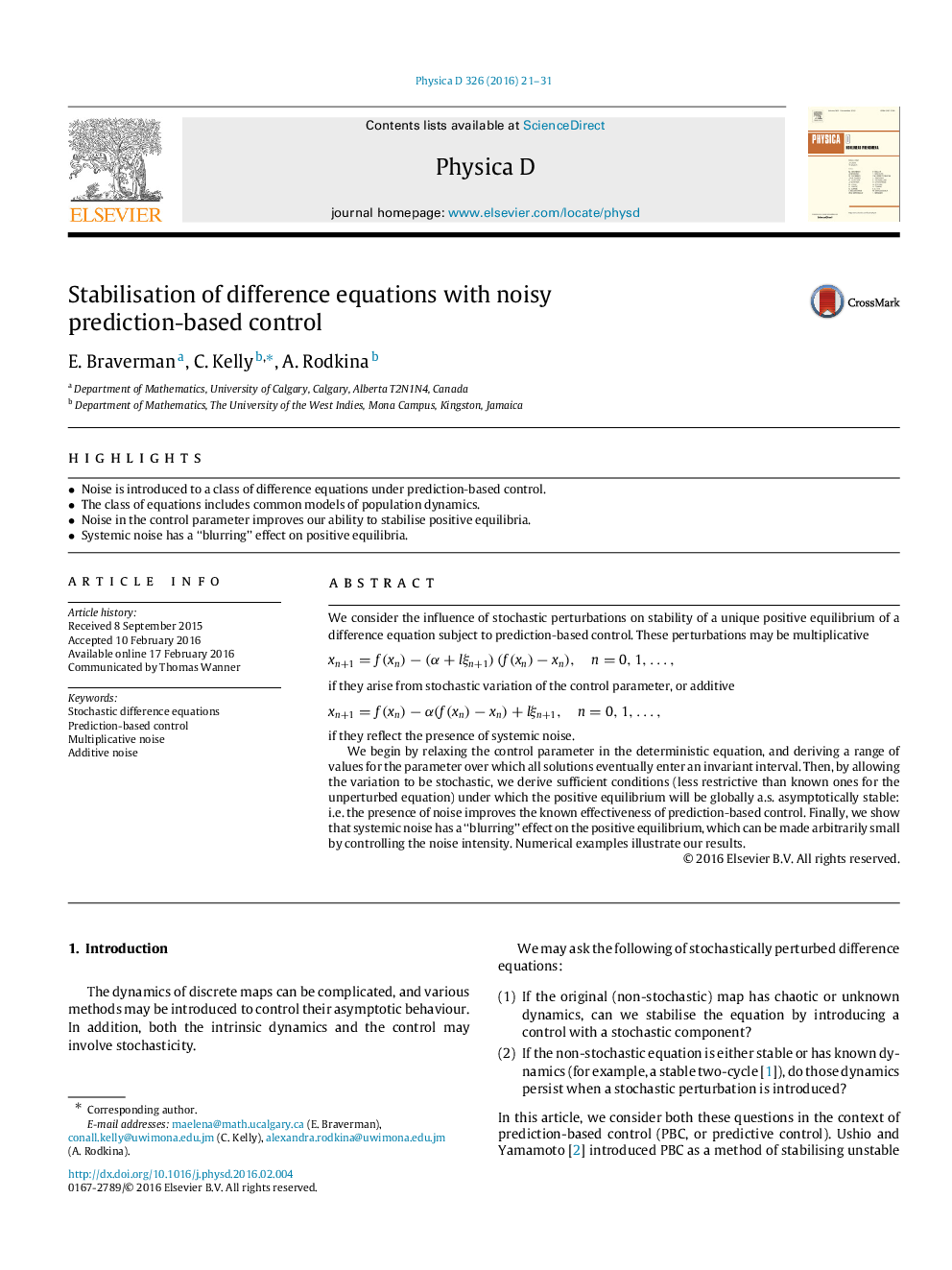| Article ID | Journal | Published Year | Pages | File Type |
|---|---|---|---|---|
| 1895284 | Physica D: Nonlinear Phenomena | 2016 | 11 Pages |
•Noise is introduced to a class of difference equations under prediction-based control.•The class of equations includes common models of population dynamics.•Noise in the control parameter improves our ability to stabilise positive equilibria.•Systemic noise has a “blurring” effect on positive equilibria.
We consider the influence of stochastic perturbations on stability of a unique positive equilibrium of a difference equation subject to prediction-based control. These perturbations may be multiplicative xn+1=f(xn)−(α+lξn+1)(f(xn)−xn),n=0,1,…, if they arise from stochastic variation of the control parameter, or additive xn+1=f(xn)−α(f(xn)−xn)+lξn+1,n=0,1,…, if they reflect the presence of systemic noise.We begin by relaxing the control parameter in the deterministic equation, and deriving a range of values for the parameter over which all solutions eventually enter an invariant interval. Then, by allowing the variation to be stochastic, we derive sufficient conditions (less restrictive than known ones for the unperturbed equation) under which the positive equilibrium will be globally a.s. asymptotically stable: i.e. the presence of noise improves the known effectiveness of prediction-based control. Finally, we show that systemic noise has a “blurring” effect on the positive equilibrium, which can be made arbitrarily small by controlling the noise intensity. Numerical examples illustrate our results.
